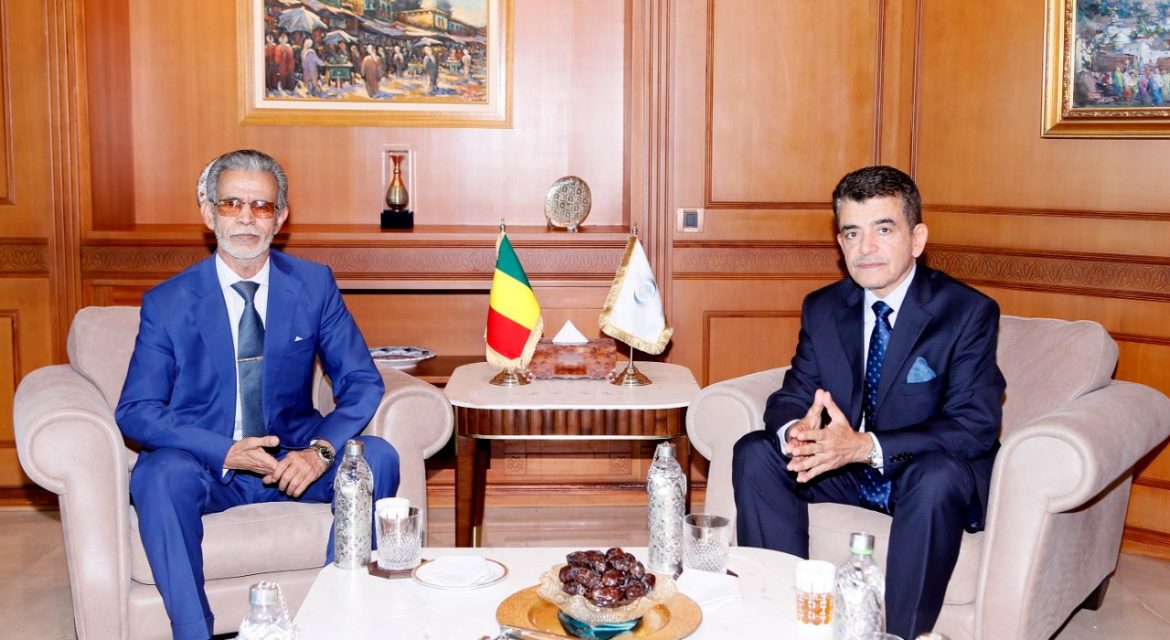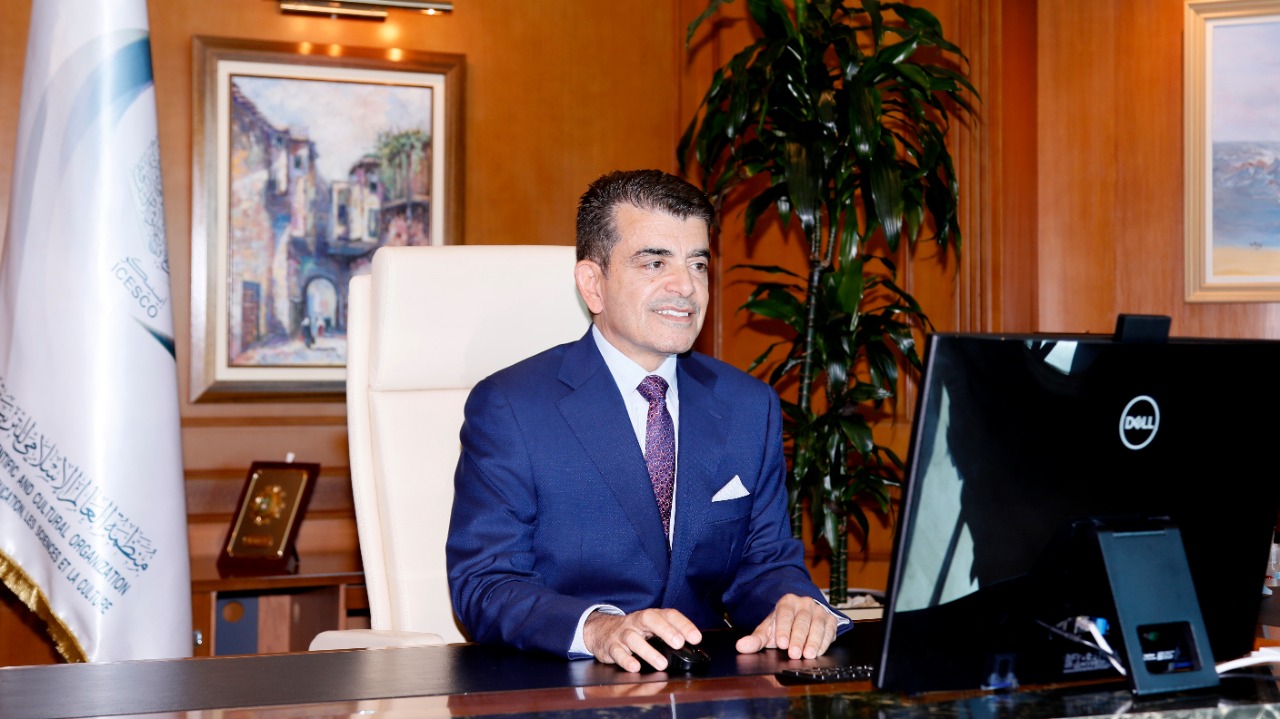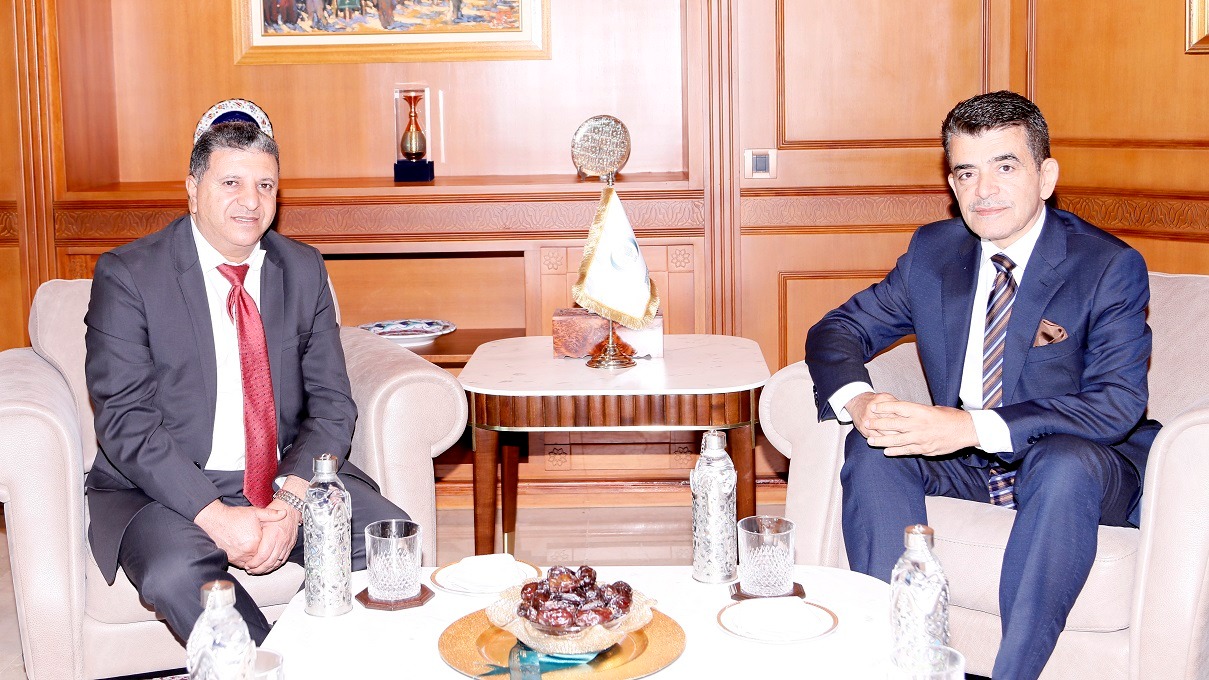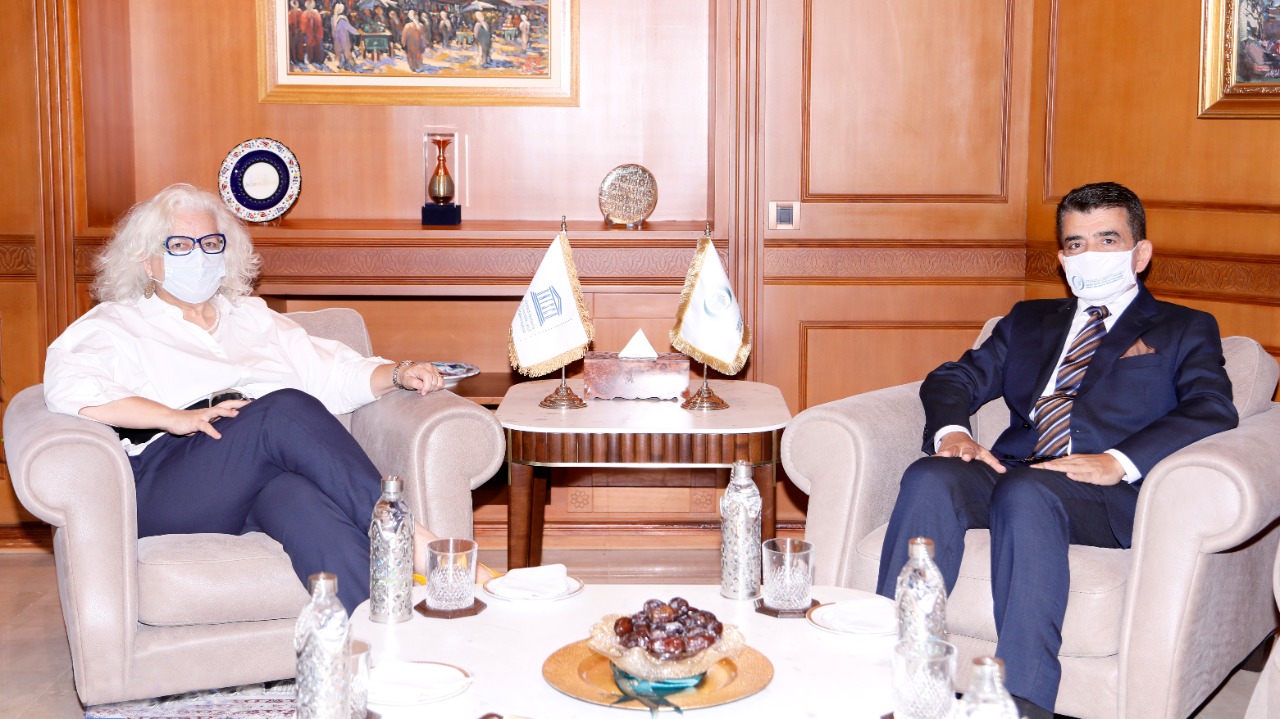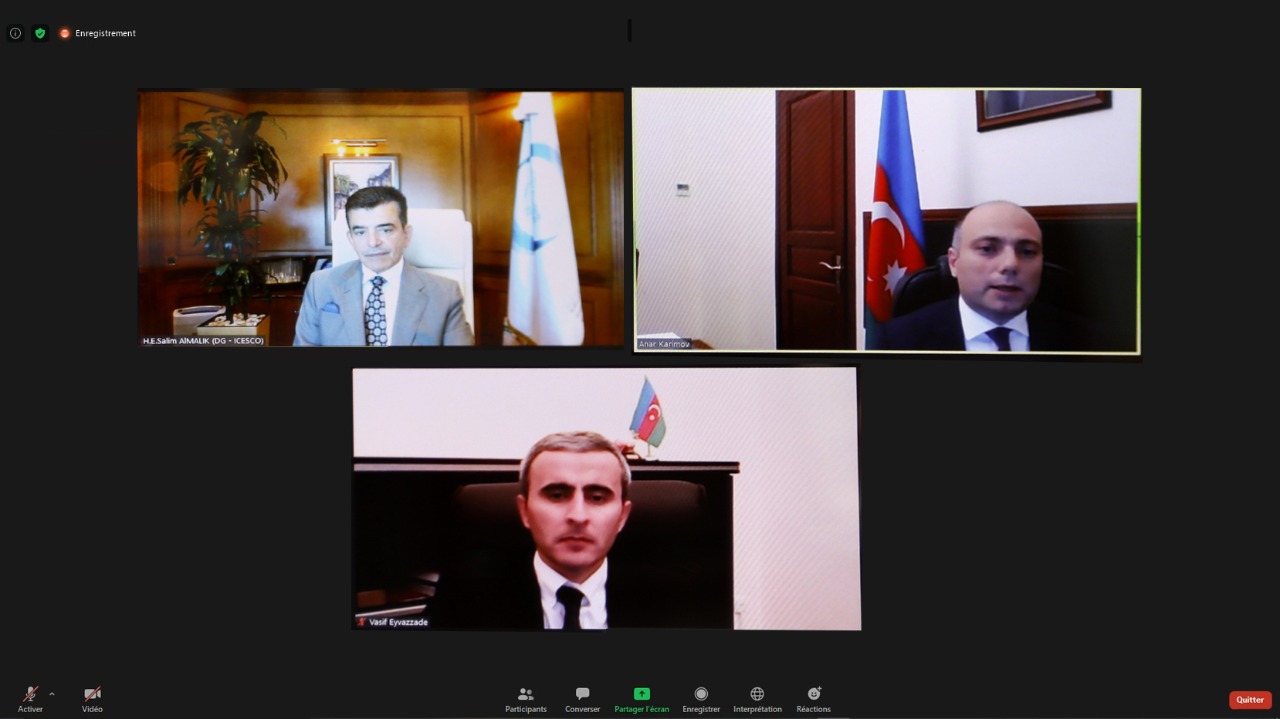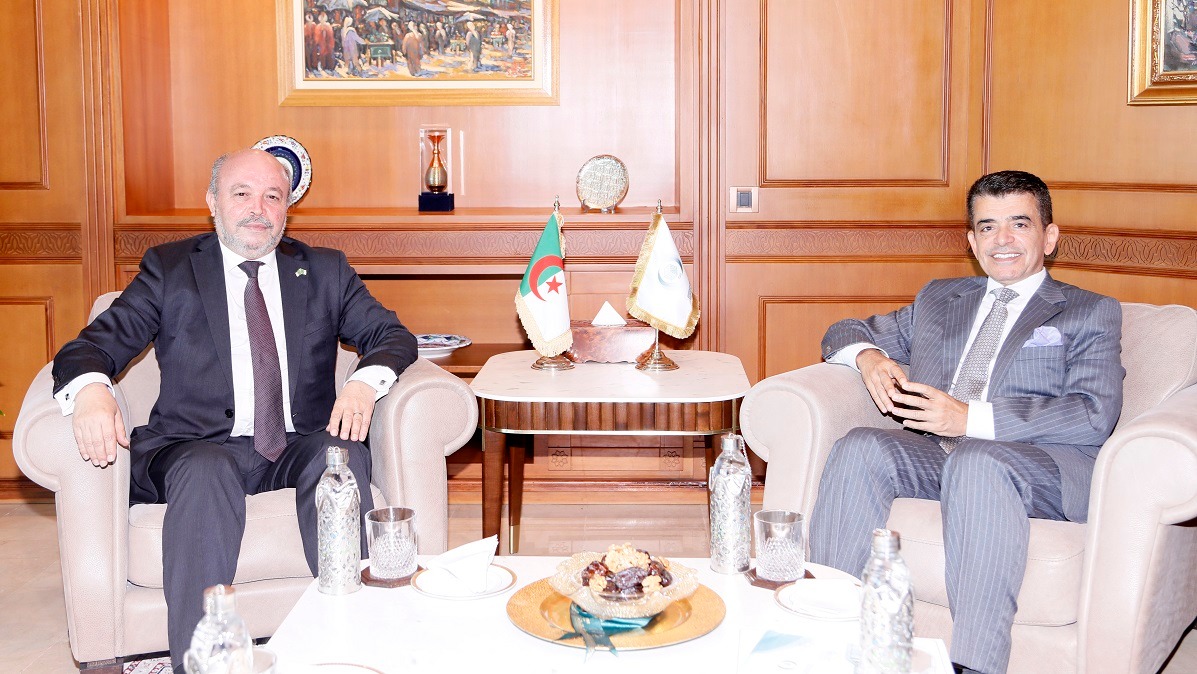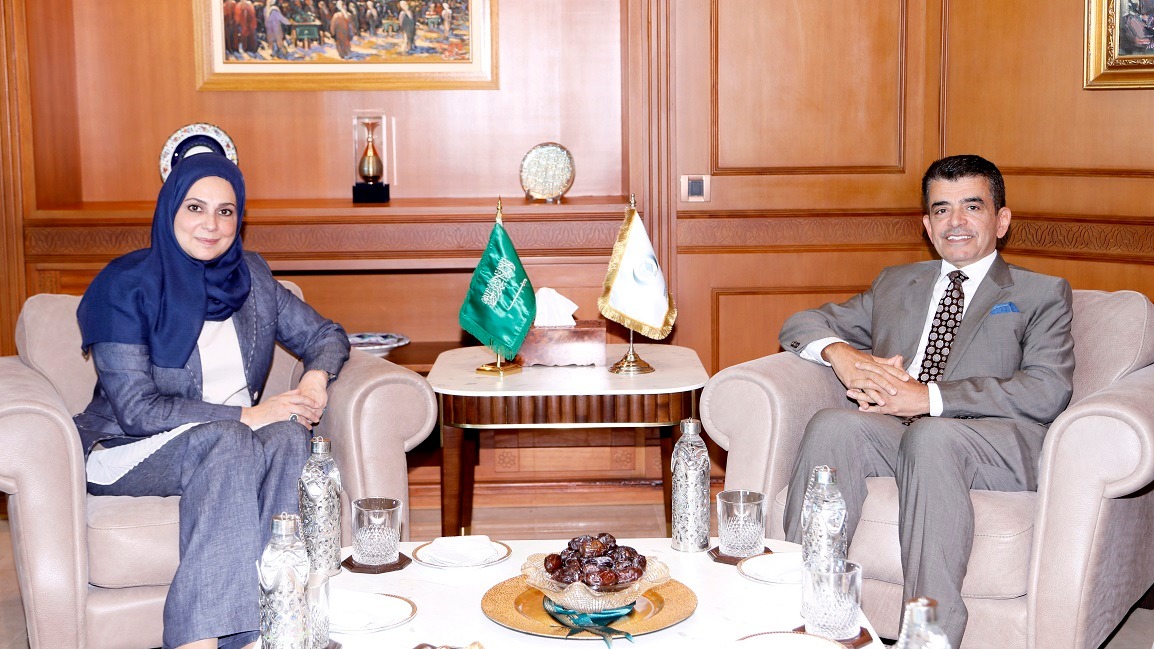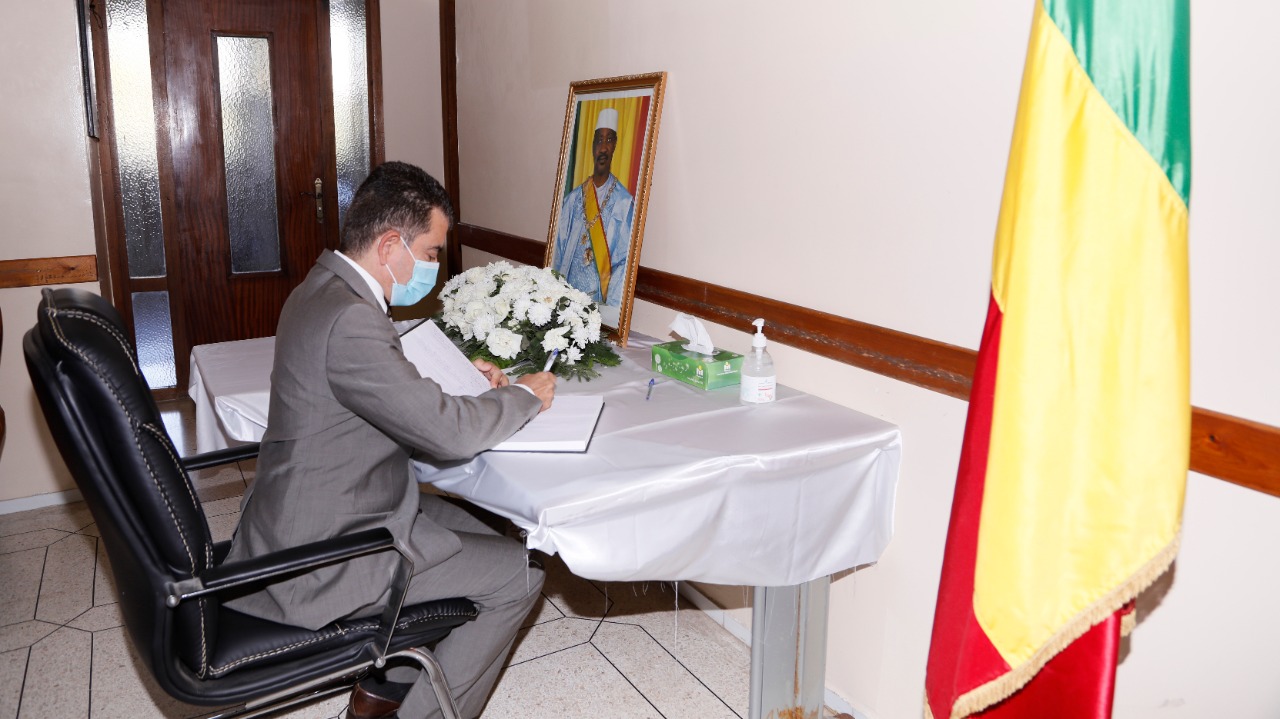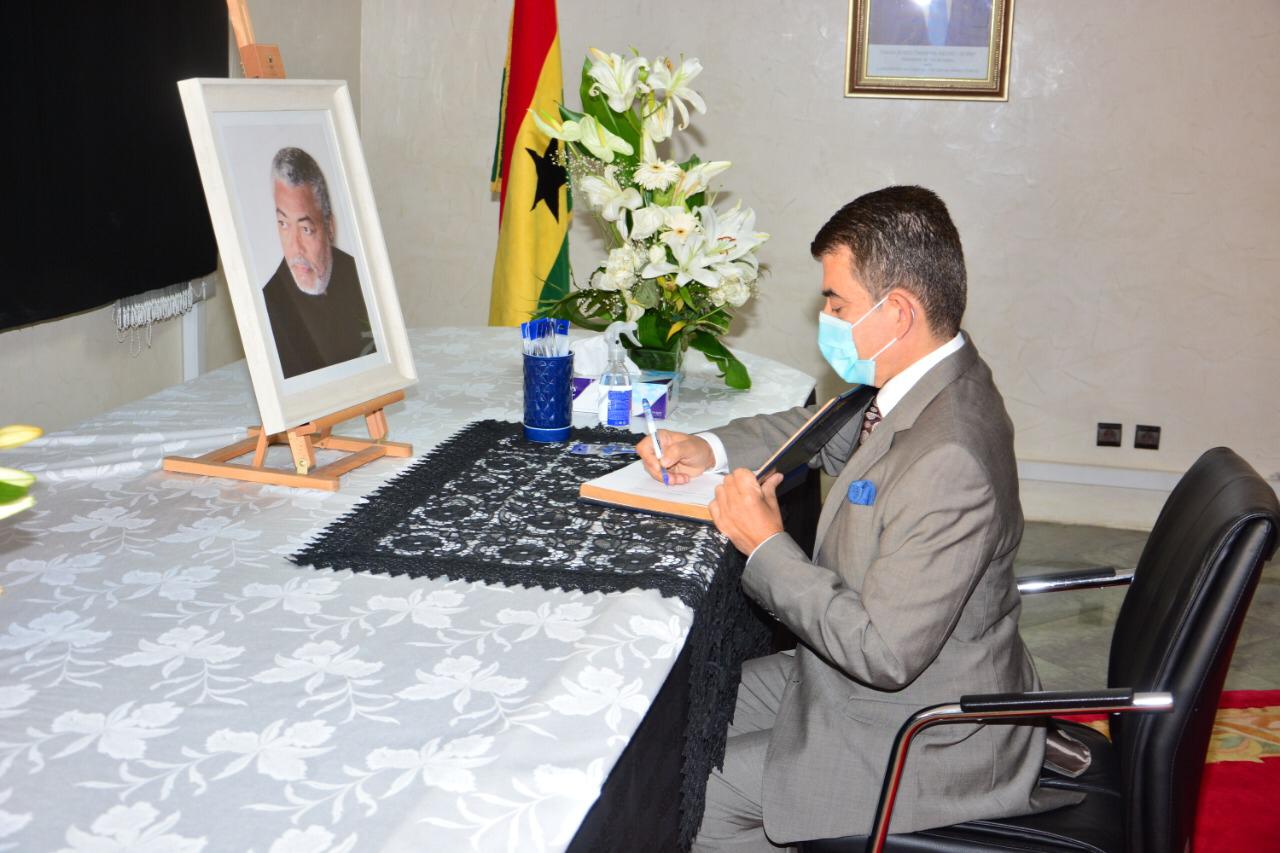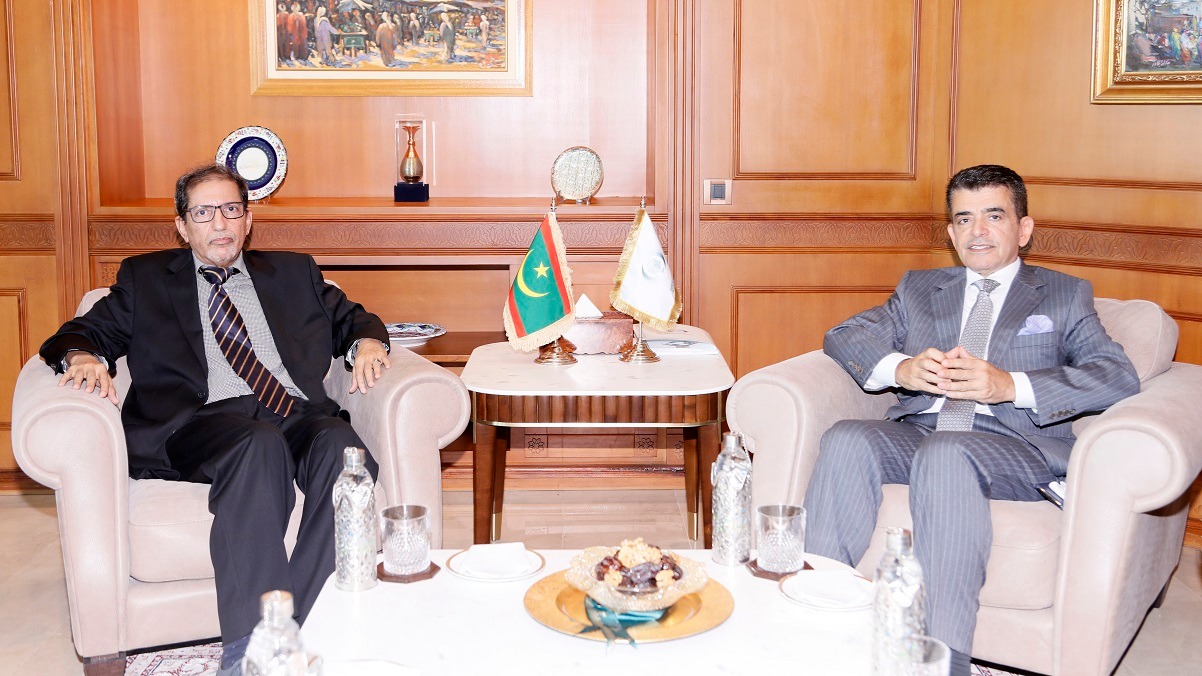Dr. Salim M. AlMalik, Director-General (DG) of the Islamic World Educational, Scientific, and Cultural Organization (ICESCO), received yesterday at ICESCO’s headquarters in Rabat, Mr. Mohamed Mahmoud Ben Labat, Ambassador of Mali to Morocco. The two parties explored the ways to develop and promote the cooperation prospects between ICESCO and Mali.
The goal is to contribute to national capacity-building in Mali in the sector of education, science, culture, communication, and human and social sciences. The Ambassador presented his credentials to the DG as a Permanent Delegate of Mali to ICESCO.
The meeting saw the participation of the heads of sectors and the advisors of ICESCO DG. Dr. AlMalik reviewed ICESCO’s new vision, which has been translated into major programs and initiatives for the benefit of several Member States, including Mali, to counter the negative repercussions of the COVID-19 pandemic in the fields of education, science, and culture.

Dr. AlMalik reiterated ICESCO’s constant willingness to support the competent parties in Mali to develop Arabic language courses and the Islamic school program. ICESCO also supports Mali’s efforts to ensure the conservation of manuscripts and the protection of heritage in Timbuktu, in particular, and Mali, in general.
The Organization assists Mali in implementing programs of social support and education on peace. The activities are likely to entrench the values of coexistence, social cohesion, and the rejection of violence and extremism in the country, expressed the DG.
Mr. Ben Labat commended the outstanding work of ICESCO, which generously supported Mali. He also expressed his country’s desire to benefit from ICESCO’s expertise in Arabic language courses and the conservation of manuscripts and the protection of heritage.
The Ambassador stressed Mali’s keenness to sustain and promote constructive cooperation with ICESCO through the specialized national institutions, including Ahmed Baba Institute of Higher Learning and Islamic Research, which is the biggest center for the conservation of manuscripts in Sub-Saharan Africa.


